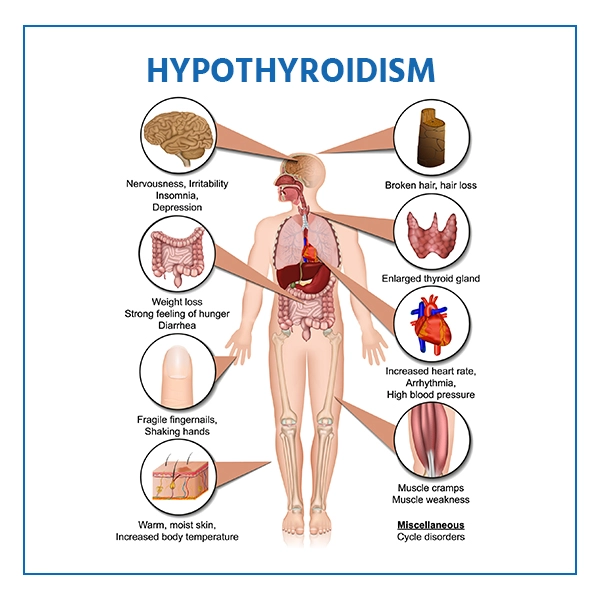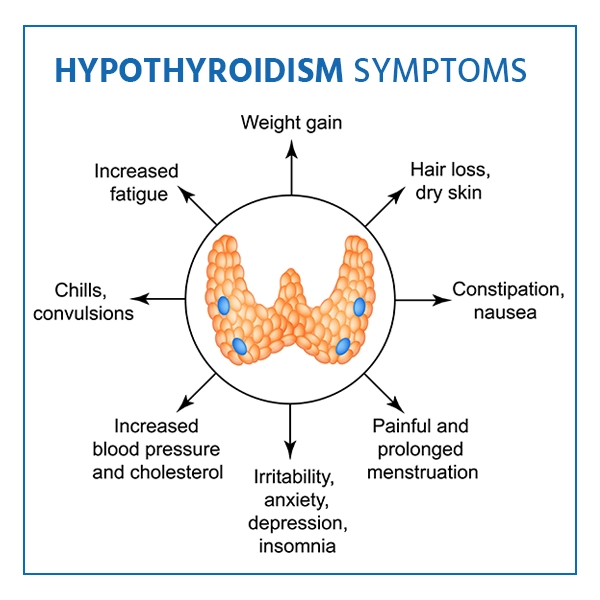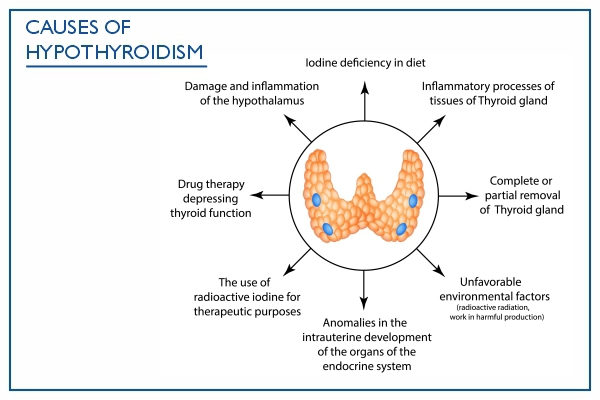What is Hypothyroidism?
Hypothyroidism, also known as an underactive thyroid gland, is a clinical disorder in which the thyroid gland does not generate sufficient thyroid hormones to meet the body's requirements. The thyroid gland releases hormones into the body that control how the body utilises energy. In the case of hypothyroidism, the body's functions slow down.
The normal thyroid levels are:
- T3: 100–200 nanograms per deciliter of blood (ng/dL)
- T4: 4.5 – 11.2 micrograms per deciliter of blood (mcg/dL)
- TSH: 0.4 – 5.0 milli-international units per litre (mIU/dL)



